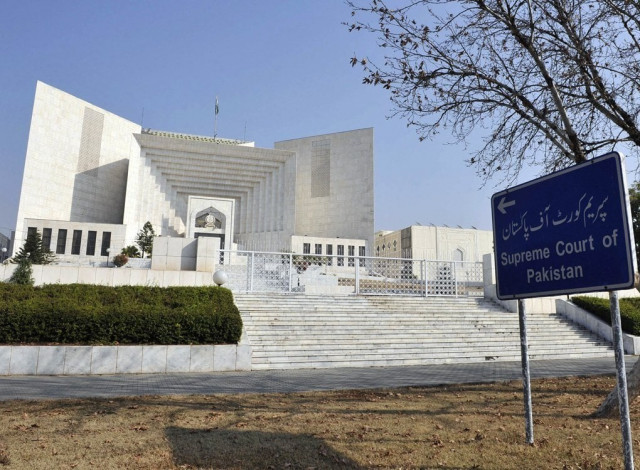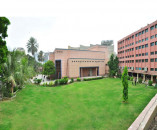Govt gets dressing down in SC over LB polls delay
Justice Isa says govt incapable of either running country or take decisions

The Supreme Court has expressed its displeasure with the government over the issue of delay in holding local bodies elections, saying the government was either incapable of running the country or taking decisions.
During hearing of the local bodies case, a two-judge bench, headed by Justice Qazi Faez Isa and comprising Justice Sardar Tariq, while expressing annoyance over the issuance of an ordinance on delimitation of constituencies by the Punjab government, referred the matter to the chief justice.
During the hearing, the apex court was informed that the decision regarding the census had not been taken by the Council of Common Interests (CCI). “Why hasn't the Council of Common Interests met in two months,” the judge asked, expressing his anger.
“Is it not a priority of the government to release the census results,” he further asked. According to the judge, the government and allies rule in three provinces, and yet not a single decision had been taken by the CCI. “The government is incapable either of running the country or taking decisions,” he added.
The judge observed that the country is run on the basis of census. He also took exception to the postponement of the CCI meeting despite the court order, terming it an insult to the constitutional institution.
According to the court, there were no war conditions that could prevent the CCI from holding its meeting. Justice Isa pointed out that nowadays meeting could take place via a video link. He mentioned that four years have passed since the census was conducted in 2017.
Additional Attorney General Amir Rehman informed the court that the meeting of the CCI would be held on March 24, adding that it was a sensitive matter therefore the government wanted to take decision with consensus.
Justice Isa asked why the report of the CCI has been kept secret. He observed that if good deed are kept secret, it would raise doubts in the minds of the people. He further observed that the people should know “what are the provinces doing, and what is the federation doing”.
The judge expressed his displeasure over the promulgation of an ordinance for fresh delimitation by Punjab governor. According to the Election Commission, he said, the ordinance has created complications. Simply put, he added, the Punjab government does not want to local elections.
In view of the ordinance, previous delimitations were scrapped, therefore, the local elections in the province had been delayed. On the last date of hearing on February 2, the Punjab government had revealed that polls in Punjab will be held in three phases.
The first phase will start from April 12 and polling will be conducted on June 20; the second phase will start from May 18 and the polling date is July 16; while the third phase will start from June 2 and polling will be held on August 8.
Interestingly, the Punjab government promulgated the new ordinance on February 3. Justice Isa said that the ECP was ready to hold local government elections but the Punjab government had promulgated the ordinance secretly and without informing the commission.
The bench wondered why the Supreme Court Registrar did not fixed a constitutional petition against the dissolution of local governments in Punjab before the expiry of their terms. The court referred the matter to Chief Justice of Pakistan (CJP) to constitute three-judge bench on the matter.
Regarding delays in holding local polls in three other provinces, Justice Isa wondered as to why the CCI could not decide about official announcement of population census 2017 despite the ruling party [the Pakistan Tehreek-e-Insaf] having governments in three provinces.
The Punjab government has already submitted its reply wherein it justified its decision to dissolve the local governments before the expiry of their terms. “The purpose of dissolution of the previous local governments was to ensure a level-playing field for all prospective candidates in the upcoming elections under the 2019 [LG] Act,” the reply said.
The reply said the right of the local governments to enjoy a complete term of five years was subject to any other provision of the act. It added that the relevant provision in the PLGA 2013, controlling the provision of section 30(1) was contained in section 146 of the PLGA-2013.
“[It said] the government may, subject to such conditions as may be specified, delegate any of its functions under this Act to an officer subordinate to it except the power to make rules, to suspend or remove a mayor or chairman or to dissolve the local governments.”
During the hearing, Justice Isa asked the counsel for the Election Commission of Pakistan (ECP) whether the Senate chairman’s election was held by the commission. An ECP official responded that that election was conducted by the Senate itself.
Upon this, Justice Isa asked where it has been mentioned in the Constitution that Senate chairman’s election would not be conducted by the commission. The ECP official said that under Article 60 it was the Senate’s powers to elect its chairman.
Background of the case
In July last year, a special bench of the apex court led by Justice Mushir Alam, while hearing the matter, issued notice to the attorney general and the advocate general of Punjab over delay in the local elections in Punjab.
Interestingly, the bench was changed and the case was clubbed with the petitions of the Muttahida Qaumi Movement (MQM) and the Pakistan Tehreek-e-Insaf (PTI) against the Sindh Local Government Ordinance 2013.
A three-judge bench of the apex court led by Chief Justice of Pakistan Gulzar Ahmad heard the MQM’s petition. In October last year, the bench, while reserving its judgment, noted that the court would give guidelines, regarding enforcement of Article 140-A of the Constitution.
As the judgment was being awaited, another bench led by Justice Isa on November 18, 2020 took up the matter regarding delay in local polls in Khyber Pakhtunkhwa. Last week, the bench resumed hearing of the case wherein the chief election commissioner (CEC) along with three ECP members appeared before the bench.
The court had summoned schedule of the local government polls in all the provinces. Now all the province are unwilling to hold LG elections before announcement of official result of population census 2017.



















COMMENTS
Comments are moderated and generally will be posted if they are on-topic and not abusive.
For more information, please see our Comments FAQ